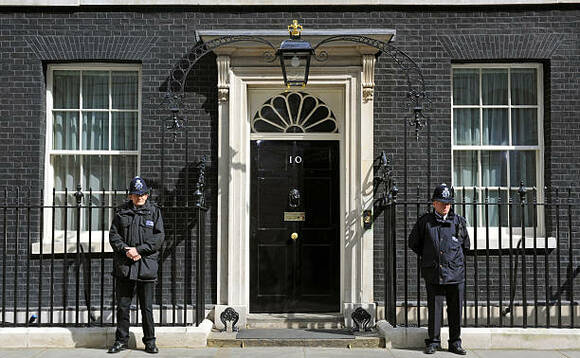With the results of who the next Prime Minister will be just days away, a range of experts have detailed how some of the policies of the two finalists might impact personal finances and what the reaction of the market might be when the next PM takes office.
How the markets will react to the winner
Richard Carter, head of fixed interest research at Quilter Cheviot says:
There's not much uncertainty about who will win the contest but there is great uncertainty in markets about what Liz Truss's policies will be.
She will face some huge challenges as the next Prime Minister, not least the cost-of-living crisis, a rapidly slowing economy and rising interest rates and it is not clear that she has the answers to any of these problems.
Instead, she seems to be considering altering the institutional framework of the UK economy in areas such as the Bank of England's inflation mandate and the role played by the OBR in budget forecasts which will not instil confidence amongst international investors.
Indeed, gilt markets and Sterling suffered a torrid August against the backdrop of a rudderless government while the leadership contest played out. Going forward, markets will want to see Liz Truss pivot away from Tory member-friendly soundbites towards sensible long-term economic policies designed to support the economy during a difficult time while also working to bring down inflation.
How their policies might impact pensions
Graham Crossley, NHS pensions expert at Quilter:
There have been welcome murmurings that if Liz Truss is to become the next PM, which seems likely at this point, one of her first priorities will be to "sort out" the issues with doctor's pensions, however care will be needed to ensure that any solutions are truly fit for purpose.
As is always the case the devil is in the detail and any plan needs to ensure that it does not produce unintended consequences that further muddy the water of what is an incredibly complicated system.
Draft proposals reported a few weeks ago revealed Truss was focusing on stemming the huge numbers of doctors exiting the NHS due to punitive pension tax.
While all ideas are welcome one of the plans proposed would allow doctors to continue working after reaching their lifetime allowance without paying the taxes that are leading to many senior staff retiring early.
Although the LTA is certainly playing a role in the exodus the annual allowance is causing far more problems for doctors throughout the NHS. The priority should be in the short term, to fix the unintended consequences of s235 Finance Act 2004 that results in annual allowance calculations assessing inflation as pension growth.
At a time when the rate of inflation is over 10% this surely means that this method of calculation is not fit for purpose as doctors brace for eyewatering tax bills landing on their doorsteps.
Worryingly, in a speech made by Secretary of State for Health and Social Care Steve Barclay yesterday, he mentioned that a consultation has been launched about retire and return easements to help with GP retention.
This consultation focuses on extending abatement rules. While extending the rules would be a great benefit predominantly for retired nurses, who have returned to work in the NHS, they have nothing to do with GPs. This will not fill the medical community with confidence as it really illustrates that any sweeping changes could fail to help.
Problems with NHS pensions have rumbled on for years and up until now very little of consequence has been done to truly address the problem so any changes from the incoming PM will be welcome.
Jon Greer, head of retirement policy at Quilter adds:
Both Sunak and Truss have voiced their commitment to the triple lock which will be huge sigh of relief to the millions who have seen the real terms value of their income from the state pension drop due to inflation this year. Come September the rate of CPI used as part of determining the state pension increase next year is likely to be over 10% and pensioners can expect to enjoy a material boost to their regular payments.
Truss will struggle to balance the books though if she wants to stay true to the Tory manifesto of keeping the triple lock in years to come in light of soaring inflation and her desire to not add any other taxes and slash existing ones. This ultimately will throw into question how the incoming social care reforms will also be funded. Something may have to give and pensioners up and down the country will be hoping that it doesn't start with the triple lock.
An area ripe for reform given the cost pressures people are facing is the Money Purchase Annual Allowance. At present, the threshold of £4,000 is simply too low as people who have rightly decided to continue to pay into their pension following accessing their funds get penalised.
The threshold should be moved to around £10,000 or scrapped altogether and replaced with anti-recycling rules. Changing these rules could act as a lifeline for those struggling to pay their bills this winter who access their pension and are not then penalised for doing so when they resume contributions in the future.
How their policies might impact personal taxes
Rachael Griffin, tax and financial planning expert at Quilter says:
Despite a looming energy crisis that threatens to be catastrophic for a large percentage of Britain's households and businesses Truss has doubled down on her decision not to provide handouts but instead lower taxes.
While Sunak has suggested he might repeat some of the handouts he has already provided, Truss has promised to cancel the national insurance rise, scrap a planned increase in corporation tax and even potentially look to increase the married tax allowance.
Her marriage tax proposal would allow couples to pool their personal tax allowance. This is the amount a person can earn before starting to pay income tax, currently £12,570 each. A fully transferable allowance would mean one spouse could earn up to £25,140 tax-free if the other is not earning due to caring responsibilities.
Although not an intrinsically bad idea it fails to help the many families who have two working parents. With a potential recession looming it feels like an odd policy which might not encourage people into the workforce and therefore boost economic growth.
Truss has also grabbed lots of headlines by claiming to want to scrap the National Insurance hike on day one of her tenure in office. However, she has so far not put forward any proposals for how the planned social care reforms will be paid for without the increase. With huge energy price rises on the horizon it's understandable to want to lower NI.
However, scrapping the hike may well lead to a situation where Truss robs Peter to pay Paul if she wants to keep the planned social care reforms.
Nothing specific has been tabled by either candidate about inheritance tax but both have said they would review the tax. As a tax that the general public love to hate it seems an area ripe for reform but it continues to quietly refill the public coffers and therefore even Truss who is looking to cut taxes here there and everywhere may leave IHT alone for the time being.
Truss' tax cutting plans are likely to be an expensive option and while it might win her the Conservative leadership race by appealing to the party members it may not wash so well with the general electorate who want tangible help with the cost of living crisis.
The poorest in society benefit the least from tax cuts and many will be worried by the plans currently being laid out as very little help will be coming their way. If Truss has been seen to have not done enough during what is touted to be a very difficult winter people will vote with their feet come the next general election.
Policy headache
Chris Beauchamp, Chief Market Analyst at IG Group, the trading platform says:
Tory PM frontrunner Liz Truss faces the mother of all policy headaches next week if she becomes PM, as seems to be universally expected. Her hints of a wide-ranging programme of tax cuts and pauses in new green levies will help hard-pressed consumers in some ways, but also risk stoking inflation in a manner that threatens to force the BoE's hand when it comes to rate rises.
And the falls in sterling have been steadily nullifying much of the effect on inflation produced by rate increases, leaving policymakers with a host of problems to overcome.
The best that can be hoped for is that perhaps markets will give the UK govt a hospital pass when it comes to massively-increased borrowing/big increases in deficit spending if the end result is to cushion the blow of the huge rises in prices and energy costs.
Short tenure in office
Elliot Hentov, Head of Macro Policy Research, EMEA, State Street Global Advisors says:
In today's tight labour market, it is difficult to find suitable candidates, so the struggles of the Conservative Party are mirrored across the economy. That said, the labour market is likely to soften a lot over the coming year with a significant rise in unemployment expected - and a similar fate looks likely to befall the new Prime Minister.
The stagflation recession of 2022-2023 will hit household finances hard: household real purchasing power forecast to be lower by year-end 2023 than in 2007 before the financial crisis. It's hard to overstate how painful this is for the electorate. The Bank of England's eager response to bring down high inflation will also come at the expense of lower growth, despite the incoming PM's various fiscal initiatives to help buffer the energy price shock.
Consequently, the combination of economic recession, higher unemployment and lower real wages does not bode well for the political survival of any government. In this regard, we believe frontrunner Liz Truss would not even enjoy the typical political honeymoon period upon taking office, and is likely to end up holding the shortest tenure in office of any Prime Minister over the past half-century before elections in 2024 prompt a change in government.










